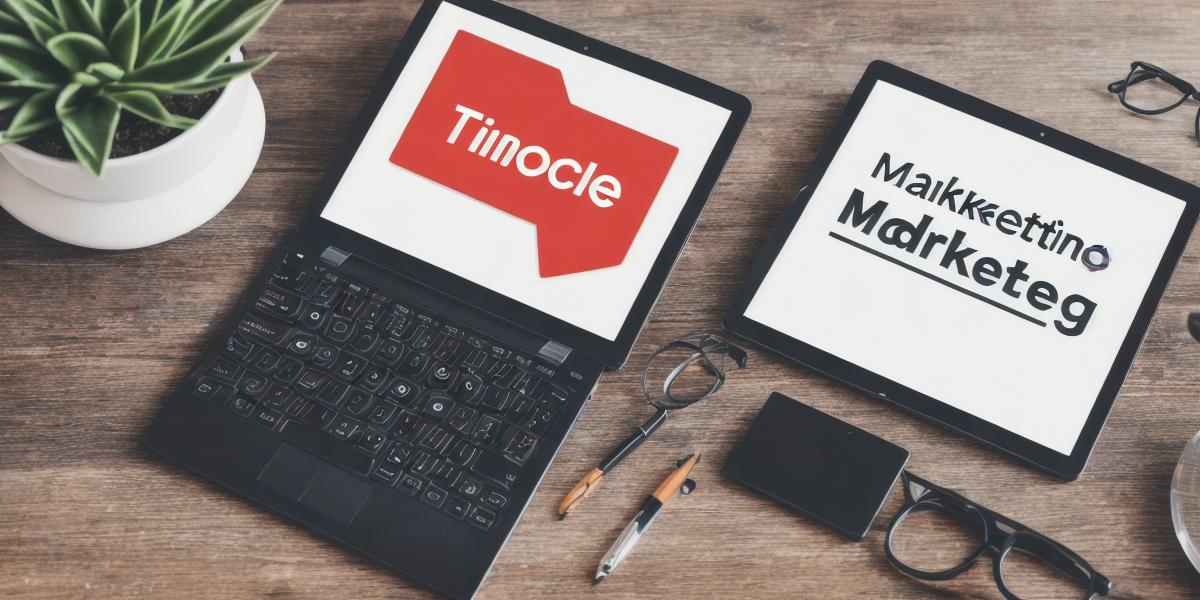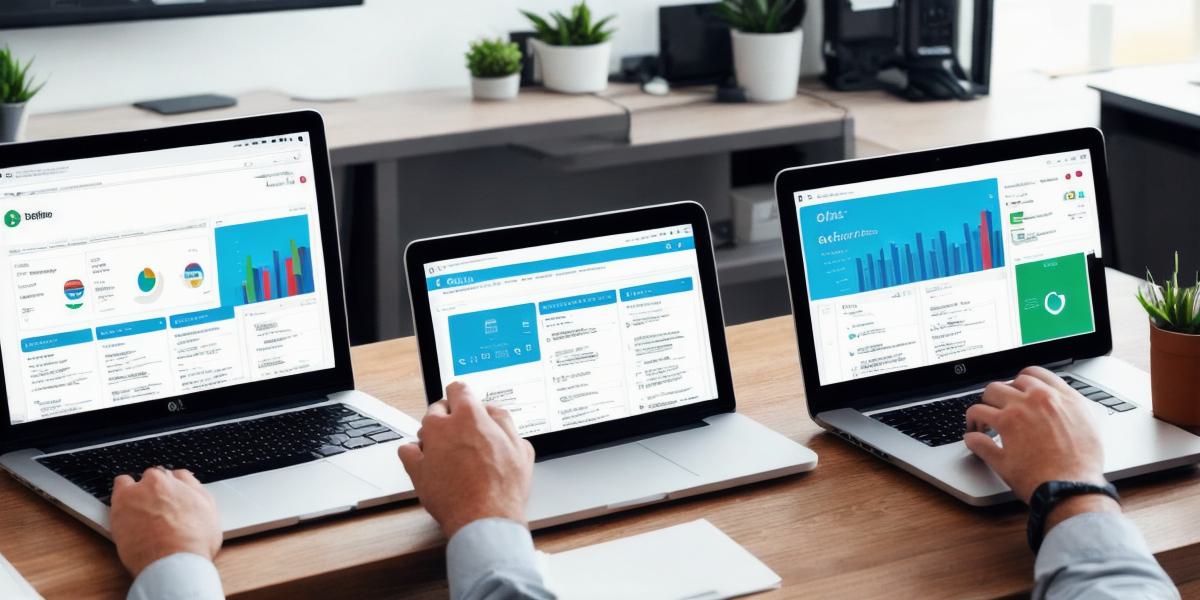Are you looking for effective marketing tools and techniques to help grow your business? You’re in luck! In this ultimate guide, we will explore some of the best and most effective marketing strategies that businesses can use to attract more customers and generate more revenue. Whether you are a new entrepreneur or an experienced business owner, this guide will provide you with valuable insights into the world of marketing and help you take your business to the next level.
Before we dive in, let’s first define what we mean by "marketing." Marketing is the process of creating, communicating, delivering, and exchanging offerings that have value for customers, clients, partners, and society at large. Essentially, it’s all about understanding your target audience, identifying their needs and pain points, and providing them with solutions to help them achieve their goals.
Now that we have a clear understanding of what marketing is, let’s take a look at some of the most effective marketing tools and techniques for growing your business:
- Content Marketing
Content marketing is a powerful strategy that involves creating valuable, relevant, and consistent content to attract and retain a clearly defined audience. By providing useful information, engaging stories, or entertaining content, businesses can establish themselves as thought leaders in their industry and build trust with their target audience. Examples of content marketing include blogs, videos, infographics, and social media posts. - Search Engine Optimization (SEO)
Search engine optimization (SEO) is the process of optimizing your website to rank higher in search engines like Google. By using relevant keywords, creating high-quality content, and building backlinks from other authoritative websites, businesses can improve their visibility in search results and attract more organic traffic to their site. This can be particularly effective for small businesses looking to compete with larger companies. - Social Media Marketing
Social media marketing involves using social media platforms like Facebook, Twitter, Instagram, LinkedIn, and TikTok to promote your business and engage with your target audience. By creating engaging content, running targeted ads, and building a strong following, businesses can reach a wider audience and generate more leads and sales.
- Email Marketing
Email marketing is the use of email to promote products or services, communicate with customers or clients, and build brand loyalty. By collecting email addresses from your target audience, you can create personalized campaigns that resonate with your audience and drive conversions. - Influencer Marketing
Influencer marketing involves partnering with social media influencers or bloggers to promote your business and reach a wider audience. By identifying influencers who have a large following in your target market, businesses can leverage their influence to generate more leads and sales. - Pay-Per-Click (PPC) Advertising
Pay-per-click (PPC) advertising involves placing ads on search engine results pages or social media platforms and only paying for each click your ad receives. This can be an effective way for small businesses with limited budgets to reach a wider audience and generate more traffic to their website. - Video Marketing
Video marketing is the use of videos to promote products or services, engage with customers or clients, and build brand loyalty. By creating high-quality videos that provide value to your target audience, businesses can generate more leads and sales and establish themselves as thought leaders in their industry. - Affiliate Marketing
Affiliate marketing involves partnering with affiliate marketers who promote your products or services and earn a commission on each sale they generate. This can be an effective way for small businesses to reach a wider audience and generate more revenue without investing in expensive advertising campaigns.
Now that we have covered some of the most effective marketing tools and techniques, let’s take a look at how these strategies can be combined to create a comprehensive marketing plan:
Step 1: Define Your Target Audience
The first step in any successful marketing campaign is to define your target audience. By understanding who your ideal customer is, you can tailor your marketing efforts to their specific needs and interests. This will help you create more effective campaigns that resonate with your audience and generate more leads and sales.
Step 2: Develop a Content Marketing Strategy
Once you have defined your target audience, the next step is to develop a content marketing strategy. This involves creating valuable, relevant, and consistent content that provides value to your audience and positions your business as a thought leader in your industry. Examples of content marketing include blogs, videos, infographics, and social media posts.
Step 3: Optimize Your Website for SEO
To attract more organic traffic to your website, it’s important to optimize it for search engines like Google. This involves using relevant keywords, creating high-quality content, and building backlinks from other authoritative websites. By doing this, businesses can improve their visibility in search results and generate more leads and sales.
Step 4: Build a Strong Social Media Presence
Social media platforms like Facebook, Twitter, Instagram, LinkedIn, and TikTok are powerful tools for reaching and engaging with your target audience. By creating engaging content, running targeted ads, and building a strong following, businesses can reach a wider audience and generate more leads and sales.
Step 5: Leverage Influencer Marketing
Influencer marketing involves partnering with social media influencers or bloggers to promote your business and reach a wider audience. By identifying influencers who have a large following in your target market, businesses can leverage their influence to generate more leads and sales.
Step 6: Utilize Email Marketing
Email marketing is a powerful tool for building brand loyalty and driving conversions. By collecting email addresses from your target audience, you can create personalized campaigns that resonate with your audience and drive more revenue for your business.
Step 7: Invest in PPC Advertising
Pay-per-click (PPC) advertising is an effective way for small businesses with limited budgets to reach a wider audience and generate more traffic to their website. By placing ads on search engine results pages or social media platforms, businesses can target specific keywords and demographics and only pay for each click their ad receives.
Step 8: Create Engaging Video Content
Video marketing is a powerful tool for engaging with your target audience and building brand loyalty. By creating high-quality videos that provide value to your audience, businesses can generate more leads and sales and establish themselves as thought leaders in their industry.
Step 9: Partner with Affiliate Marketers

Affiliate marketing involves partnering with affiliate marketers who promote your products or services and earn a commission on each sale they generate. This can be an effective way for small businesses to reach a wider audience and generate more revenue without investing in expensive advertising campaigns.
By following these steps and combining these strategies, businesses can create a comprehensive marketing plan that will help them attract more customers and generate more revenue. However, it’s important to remember that every business is unique, so it’s important to tailor your marketing efforts to your specific needs and goals.
In conclusion, marketing is an essential component of any successful business. By using effective marketing tools and techniques like content marketing, SEO, social media marketing, email marketing, influencer marketing, PPC advertising, video marketing, and affiliate marketing, businesses can attract more customers and generate more revenue. To create a comprehensive marketing plan, it’s important to define your target audience, develop a content marketing strategy, optimize your website for SEO, build a strong social media presence, leverage influencer marketing, utilize email marketing, invest in PPC advertising, create engaging video content, and partner with affiliate marketers. By following these steps and combining these strategies, businesses can achieve their marketing goals and take their business to the next level.
FAQs:
Q: What is the difference between SEO and PPC advertising?
A: SEO involves optimizing your website for search engines like Google so that it appears higher in search results. This involves using relevant keywords, creating high-quality content, and building backlinks from other authoritative websites. On the other hand, PPC advertising involves placing ads on search engine results pages or social media platforms that target specific keywords and demographics. By doing this, businesses can generate more traffic to their website and reach a wider audience.
Q: Is video marketing effective?
A: Yes, video marketing is an effective way to engage with your target audience and build brand loyalty. By creating high-quality videos that provide value to your audience, businesses can generate more leads and sales and establish themselves as thought leaders in their industry.
Q: How do I choose the right affiliate marketers for my business?
A: To choose the right affiliate marketers for your business, it’s important to research their track record, audience demographics, and engagement rates. You should also look for affiliate marketers who have a large following in your target market and whose values align with those of your business. By doing this, you can find affiliate marketers who will effectively promote your products or services and generate more revenue for your business.




